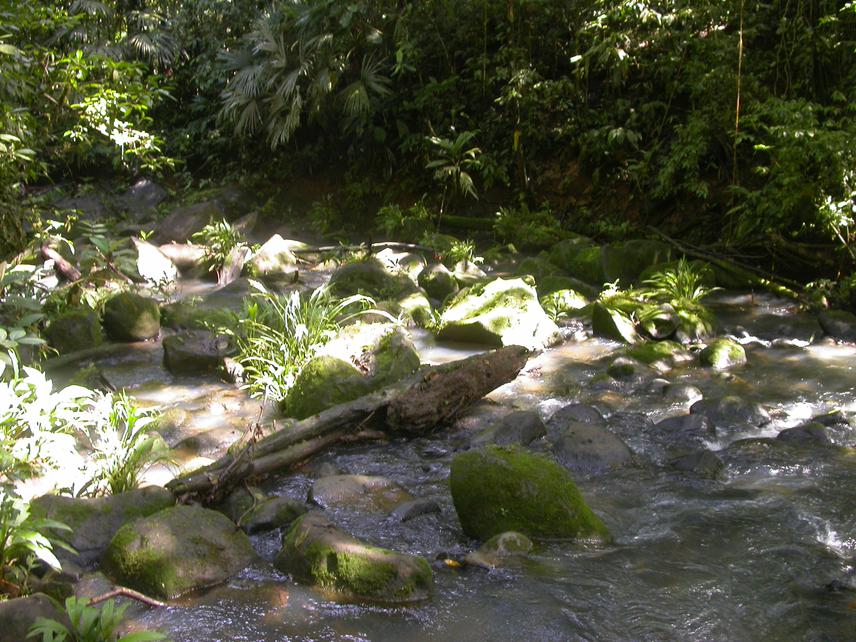Pablo E Gutierrez Fonseca
The purpose of this study is to determine the effects of two variables that are expected to express more variation in the face of global changes (episodic acidification events and discharge) on aquatic macroinvertebrates assemblages in Costa Rican lowland tropical streams.

Freshwater ecosystems are among the planet’s most vulnerable environments to climate change. In streams, several important environmental parameters are expected to be affected by predicted changes in precipitation as the climate changes. As rainfall becomes more variable, stream discharge is also expected to become more unpredictable. Variation in discharge is a key factor structuring macroinvertebrate assemblages. Recent studies in lowland streams in Costa Rica have found that decreases in precipitation result in changes in stream water pH, creating episodic acidification events. Both variations in discharge and episodic acidification are likely to play major roles influencing macroinvertebrate assemblages in streams.
Aquatic macroinvertebrates are important components of freshwater ecosystems. They play major roles in diverse ecosystem processes, such as organic matter breakdown, primary and secondary productivity, and nutrient cycling; they are also important energy sources for higher trophic levels (e.g.,fish). The importance of macroinvertebrates in maintaining stream integrity is highlighted by their use in stream biomonitoring. Variations in stream environmental conditions often result in changes of macroinvertebrate assemblage composition, which are used as signals of alterations. Although they are a key group to assess climate change effects on stream ecosystems, information on the impact of climate change on macroinvertebrates is limited.
We propose to study six lowland streams in Costa Rica, to characterize how fluctuations in aquatic macroinvertebrates relate to discharge and natural acidification events. Geomorphological features of channel and floodplain areas will be measured for each stream to determine their vulnerability to stream flow changes. This study will be conducted at La Selva Biological Station (LSBS), a 1563ha reserve in the Caribbean lowlands of Costa Rica, composed of mature and secondary tropical rainforest and drained by a network of streams. The station is owned and operated by the Organization of Tropical Studies.
The study will contribute to the development of novel aquatic biomonitoring strategies, which would take into account expected changes in the community due to natural extreme events brought on by global change. The practical conservation outcomes of this proposal will be (1) workshops for biomonitoring experts and (2) lectures for the public interested in biomonitoring and stream conservation. Both activities will include presentations and informational brochures that will be designed based on the information collected during this study.